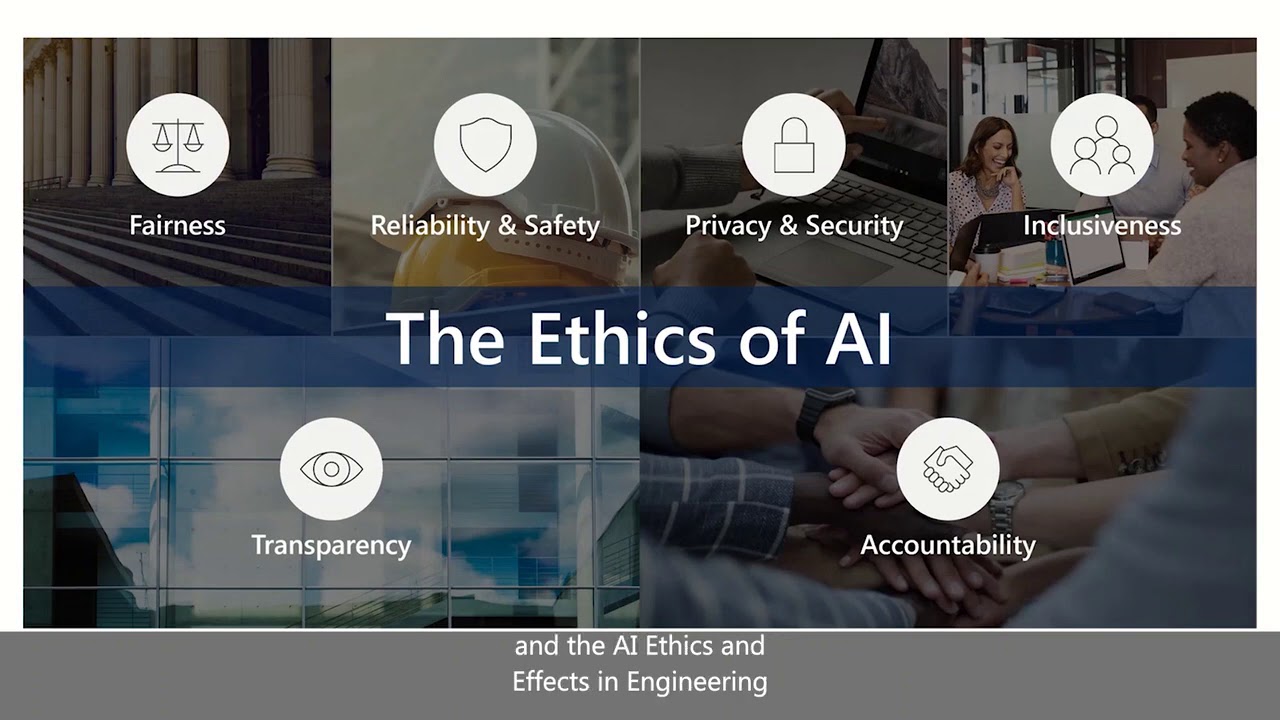Responsible Ai
Unleash Your Creative Genius with MuseMind: Your AI-Powered Content Creation Copilot. Try now! 🚀
As advancements in artificial intelligence (AI) continue to accelerate, it is crucial that we consider the impact of these technologies on both personal and societal levels. While AI has been instrumental in automating tasks and driving innovation across industries, it has also raised ethical concerns. In fact, nearly 9 out of 10 organizations have encountered ethical issues resulting from the use of AI.
At Microsoft, we recognize the importance of responsible AI and have developed six principles to guide the development of AI systems. These principles are designed to ensure fairness, reliability and safety, privacy and security, inclusiveness, transparency, and accountability. By incorporating these principles into your practice, you can avoid ethical pitfalls and build AI solutions that put people first.
Incorporating Responsible AI into Your Practice
To effectively incorporate responsible AI principles into your practice, it is essential to consider them from the early stages of project development. Infusing these principles early on allows you to mitigate ethical concerns and create AI solutions that align with your values. Here's an example of how you can implement responsible AI throughout the project lifecycle:
Envisioning Phase: Consider the Impact on StakeholdersDuring the envisioning phase, think about the potential impact of AI on a diverse group of stakeholders. By identifying and addressing potential bias or discrimination early on, you can ensure that your AI solution is fair and inclusive.
Define Phase: Understand Your Data Sets and MetricsIn the define phase, it is crucial to clearly define and understand your data sets and metrics. By doing so, you can identify any potential biases in the data and take steps to address them.
Prototyping Phase: Create Transparency in ML ModelsIn the prototyping phase, use specific tools that promote transparency in your machine learning (ML) models. Tools like Interpret ML can help you understand how your models make decisions and check for biases.
Build Phase: Balancing Fairness and AccuracyIn the build phase, consider the trade-off between fairness and accuracy with tools like Fairlearn. It is important to strike a balance that ensures fairness while maintaining the desired level of accuracy.
Launch Phase: Test with a Diverse GroupWhen launching your AI solution, make sure to test it with a diverse group of users. This can help uncover any biases or issues that were not identified during the development process.
Evolve Phase: Analyze and Improve with Responsible AI Principles in MindAs you evolve your AI solution, continue to analyze and improve your models with responsible AI principles in mind. Regularly assess and address any ethical considerations that arise to ensure that your solution remains responsible and aligned with your values.
Microsoft's Resources for Responsible AI
At Microsoft, we understand the importance of providing resources to help you build your own responsible AI practice. We offer the AI Business School, which can guide you in establishing a responsible AI strategy based on the values of your organization. Additionally, we provide a range of AI resources that offer tools, guidelines, and additional support to help you create responsible AI solutions.
To access these resources and learn more about responsible AI, visit www.microsoft.com/ai/responsible-ai.
Partner Tech Talks and Workshops on Responsible AI
If you are interested in deepening your knowledge and understanding of responsible AI and ML, we recommend checking out our Partner Tech Talks. These 90-minute virtual sessions provide tailored learning and guidance, with rich content, live Q&A, and interactive demos. We have already covered building responsible AI and ML solutions in previous talks and will continue producing more talks in this area.
Additionally, you can register for our Responsible AI or Responsible ML workshops. These workshops are designed to aid Microsoft partners in developing awareness of responsible AI and implementing governance models for their organizations. They provide a comprehensive understanding of responsible AI practices and their implementation in model development and design.
If you have any questions or would like to learn more about what Microsoft's One Commercial Partner (OCP) is doing with responsible AI, feel free to reach out to me at [email protected]. I look forward to seeing the incredible AI solutions you build!
Thank you for your time and dedication to responsible AI.

Related Recaps
- First thing you did right out of prison?
- Nigeria economy: Currency redesign leads to cash shortages
- Compound adjectives in English | hyphenated adjectives #adjectives #easyspokenenglishkanchi
- The Secret of How to Think Like an Entrepreneur | Amy Wilkinson | TEDxPaloAltoSalon
- The ocean can have a few car batteries.